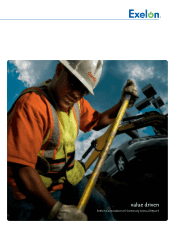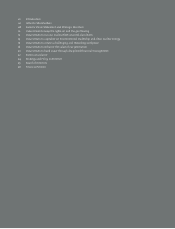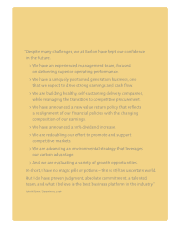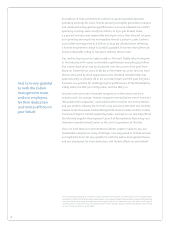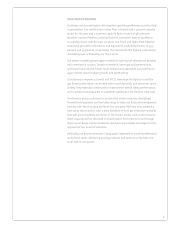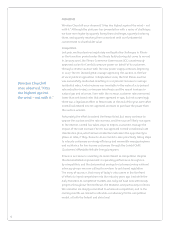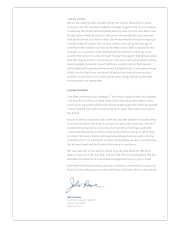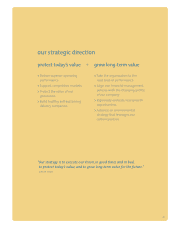Exelon 2006 Annual Report Download - page 8
Download and view the complete annual report
Please find page 8 of the 2006 Exelon annual report below. You can navigate through the pages in the report by either clicking on the pages listed below, or by using the keyword search tool below to find specific information within the annual report.
6
challenges
Winston Churchill once observed,“Kites rise highest against the wind – not
with it.” Although the past year has presented us with a series of challenges,
we have risen higher by squarely facing those challenges, squarely disclosing
them, and squarely resolving them consistent with our fundamental
commitment to shareholder value.
Competition
Last year, we faced serious regulatory and legislative challenges in Illinois
as the transition period under the Illinois Restructuring Act came to an end.
In January 2006, the Illinois Commerce Commission (ICC) unanimously
approved a plan for ComEd to procure power on behalf of its customers
through a reverse auction with the new power supply contracts beginning
in 2007. The ICC showed great courage approving the auction in the face
of vocal political opposition. In September 2006, the first Illinois auction
was successfully conducted, resulting in a 22 percent increase in average
residential rates. A rate increase was inevitable in the wake of a 20 percent
rate reduction in 1997, a nine-year rate freeze and the recent increase in
natural gas and oil prices. Even with the increase, customer rates remained
lower than cost based rates that were approved in 1995. But not surprisingly,
there was a legislative effort to freeze rates at the end of the year, even after
ComEd had entered into ICC approved contracts to purchase the power from
the auction winners.
Fortunately, the effort to extend the freeze failed. But many continue to
oppose the auction and the rate increase, and the issue will likely rise again.
In the interim, ComEd has taken steps to help its customers manage the
impact of the rate increase. The ICC has approved ComEd’s residential rate
stabilization plan, which allows residential customers the opportunity to
phase-in rates, if they choose to do so. ComEd is also proactively taking steps
to educate customers on energy efficiency and renewable energy programs
and assistance for low-income customers through the ComEd CARE
(Customers’ Affordable Reliable Energy) program.
Illinois is not alone in revisiting its commitment to competition. Despite
the demonstrated improvement in operating performance brought on
by competition, and the documented savings to customers, many national
advocacy groups are now calling for a return to cost-based regulation.
The irony, of course, is that many of today’s critics were in the forefront
of efforts to inject competition into the industry years ago. And while the
early transition to competitive markets was rocky, we have now seen steady
progress throughout the Northeast, the Midwest, and particularly in Illinois.
We at Exelon are deeply committed to wholesale competition, and in the
coming months we intend to redouble our advocacy for the competitive
model, at both the federal and state level.
Winston Churchill
once observed,“Kites
rise highest against
the wind – not with it.”

